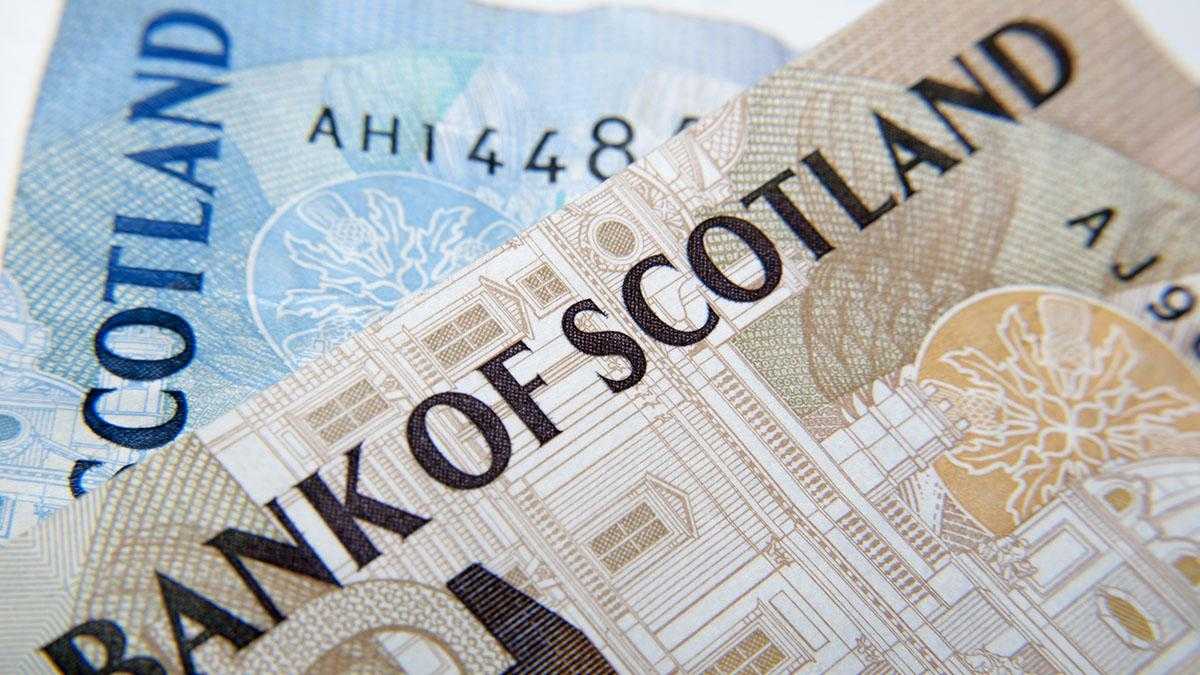Scottish National Party (SNP) members have voted for a “fast-track” plan to ditch the pound if Scotland were to vote for independence, directly opposing the views of party leadership.

The party membership supported the preparation of a Scottish currency “as soon as practicable”.
Leader Nicola Sturgeon’s allies had opposed this amendment at her party’s conference Friday, but the proposal was forced through. Sturgeon last week backed another independence referendum within two years, a policy ruled out by the Conservatives. A referendum requires approval from Westminster but with Brexit still not finalised it would be a major, unwanted distraction.
The Commission, under the chairmanship of former SNP MSP Andrew Wilson, recommended that an independent Scotland should keep the pound in an extended transition period. Left-wingers in the party believed the Commission’s stance, which has been dubbed “sterlingisation”, amounted to the SNP giving control of monetary policy to Westminster.
In Edinburgh On Friday SNP deputy leader Keith Brown and Scottish Government Finance Secretary Derek Mackay tabled a resolution which tried to address the concerns of critics by committing an SNP Government to establish an independent currency.
The resolution did not provide a timescale, but instead noted that the process would be guided by an independent Scotland meeting six economic tests set by the Commission. The six tests in the growth commission are:
- Fiscal sustainability – a “sufficiently strong and credible fiscal position in relation to budget deficit and overall debt”
- A Scottish central bank with “international and market credibility”
- Evidence that the currency would “meet the ongoing needs of Scottish residents and businesses”
- Sufficient currency reserves
- Proof that Scotland’s economic cycle is “significantly out of phase” with that of the UK, so that an independent currency is “feasible and desirable”
- The currency must “fit to trade and investment patterns” better than the pound
It’s widely thought the transition could take up to a decade. It added that sterling would be used until a new currency could be “safely and securely established in the interests of the whole economy”.
George Kerevan, a former SNP MP, was one of the most senior Nationalists to back a new currency being set up in the first term of an independent Scotland. He described the main resolution as “vague” and said of the prospect of selling a policy of a new currency to voters without a timescale: “They’ll not be convinced.” He also told delegates: “You will have to tell them when.”
Kerevan added that there is a “major time bomb” in the sterlingisation plan, arguing that there was “no way” of creating reserves to bail out banks that were in trouble.
After the vote, Kerevan commented: “I am pleased the membership has forced the leadership to accept for the first time that we will introduce a new currency as soon as practicable after independence. In the meantime, I think sterlingisation will start to unravel as a policy as soon as it is put under public scrutiny.”
Pamela Nash, chief executive of the pro-UK Scotland in Union campaign group, said: “The SNP has voted to fast-track its plan to scrap the pound and put salaries, mortgages and pensions at risk. In a huge challenge to Nicola Sturgeon’s authority, members have snubbed her proposal and voted to complete this reckless act even sooner than she wanted.”
Jackson Carlaw, interim leader of the Scottish Tories, said: “This is a profoundly embarrassing snub for the SNP leadership. And it shows that Nicola Sturgeon is now at the beck and call of an extreme economic agenda within the SNP which would rip the pound from our pockets as soon as possible. It only underlines the growing need to stand up against Nicola Sturgeon and say no to a second referendum so we can focus on what matters, not the SNP’s deeply dangerous plans to dump the pound.”
A YouGov poll for The Times newspaper published on Saturday found 48% of voters would want to continue use of the UK pound after independence, with just 5% supporting the immediate launch of a new currency. But YouGov found only 14% backed the new SNP policy of using sterlingisation for a transition period followed by the creation of a new currency and party critics say the policy would be a difficult sell to voters. However, other poll data by the YouGov was more encouraging for supporters of independence with 49% of respondents backing cutting ties, up from 45% in YouGov’s last poll in June.
Another survation poll commissioned by Scotland in Union, found that 71% of respondents wanted to continue with the pound. Around 12% backed a separate currency. Fewer than one in 10 (7%) of the 1,012 adults polled said they wanted to use the euro instead of the pound.
Sturgeon also announced plans at her keynote speech on Sunday, greater regulation of short-term let firms such as Airbnb: “We are asking for views on a new system of regulation to make short term lets subject to the same controls as any other accommodation.
“We want to give councils the power to control the number of lets and ensure they make a contribution to the services they use.”
Already this month, Nicola Sturgeon, SNP leader, has renewed calls for Scotland to be ready to hold a second referendum by 2021 if the UK leaves the EU as the landscape has “materially and significantly changed”. However, the call was heavily caveated and the refusal of the UK government to approve another plebiscite mean most analysts say an early vote is highly unlikely. The Pound and UK is still highly dominated by news of the lack of Brexit progression.